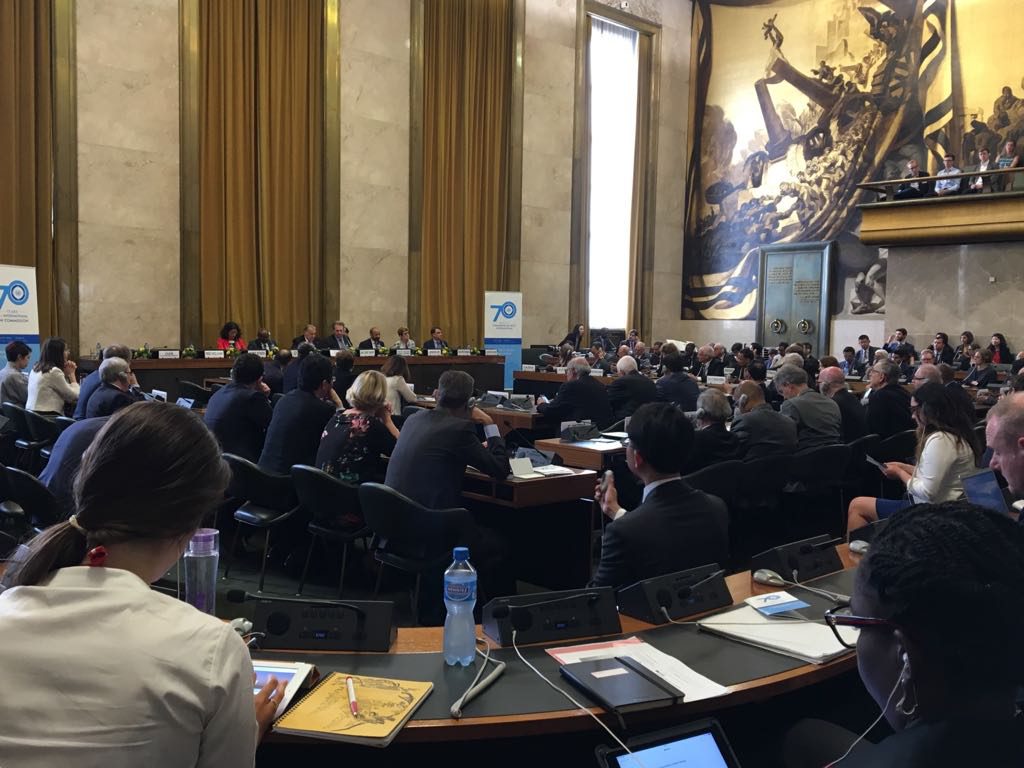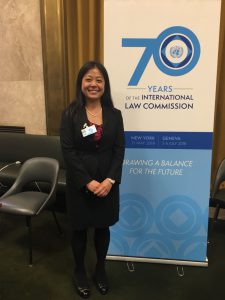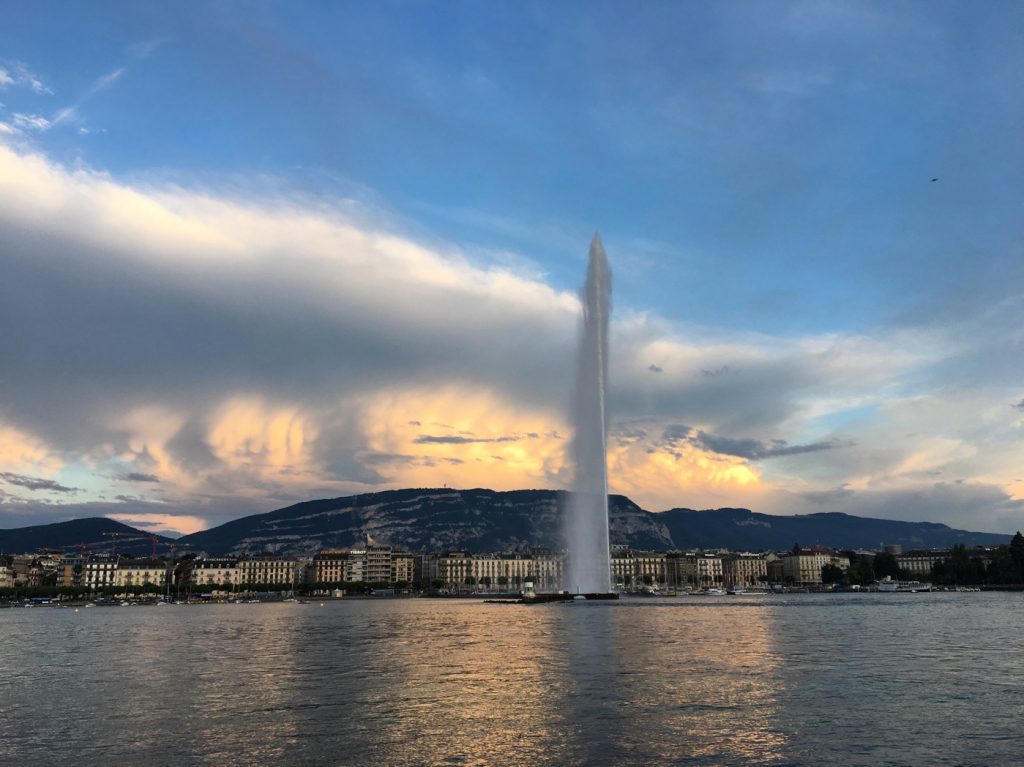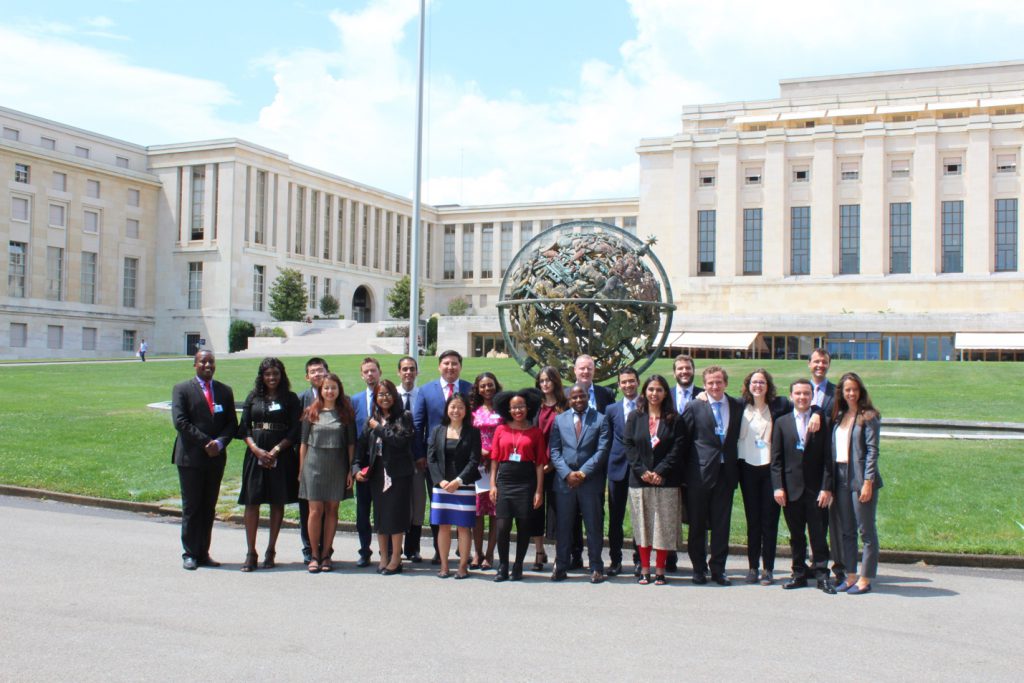By: Jing Geng
2018 is a year of important milestones in international law and politics. For instance, this November 11 will mark the centenary of the end of the First World War. During the deadly conflict, over 30 nations declared war and over 16 million people lost their lives. This year also commemorates the 70th anniversary of the Universal Declaration of Human Rights. Adopted by the United Nations General Assembly on December 10, 1948, the Declaration enshrines the fundamental freedom, equality, and dignity of every human being. With regard to the prevention and punishment of international crime, 2018 marks 70 years of the Genocide Convention and 20 years of the Rome Statute of the International Criminal Court. In this year of noteworthy anniversaries, I would like to focus this blog post on the United Nations International Law Commission.

70 Years of the International Law Commission. The International Law Commission (ILC) recently concluded its 70th session at the United Nations Office at Geneva. In 1947, the General Assembly established the ILC as a subsidiary organ tasked with promoting “the progressive development of international law and its codification.” The ILC conducted its first session in 1949 and have met annually for ten to twelve weeks in Geneva. As part of a broader “codification movement” the aim of written international law was to ensure certainty, the rule of law, and peace and stability. Over the years, the ILC has contributed its expertise to significant developments in international law such as in the fields of State responsibility, the law of treaties, law of the sea, consular and diplomatic relations, and international criminal law, among others. Members of the ILC are independent experts elected by the General Assembly via secret ballot for five-year terms. Currently there are 34 members representing regional, legal, and cultural diversity. Historically, membership has been predominately male, with the first two female members elected by the General Assembly in 2001. To date, there have been a total of seven female members in seven decades of the ILC. Therefore, nominating States have further work to do in achieving gender parity in ILC membership.
 During the month of July, I was privileged to deepen my knowledge of the work of the Commission as a participant of the International Law Seminar in Geneva, Switzerland. Each year, the Seminar brings together twenty-five young international lawyers from various cultural and legal backgrounds to debate the codification and progressive development of international law. As participants, we observed ILC plenary sessions to familiarize ourselves with the work and working methods of the Commission; we attended lectures delivered by ILC members and visited various Geneva-based international organizations; and we divided into working groups under the supervision of ILC members Patricia Galvão Teles (Portugal) and Charles C. Jalloh (Sierra Leone) to study the identification of new ILC topics and universal criminal jurisdiction (a topic which has now been added to the long-term program of work of the ILC). Perhaps one of the most memorable moments of this year was the commemoration of the 70th anniversary of the Commission.
During the month of July, I was privileged to deepen my knowledge of the work of the Commission as a participant of the International Law Seminar in Geneva, Switzerland. Each year, the Seminar brings together twenty-five young international lawyers from various cultural and legal backgrounds to debate the codification and progressive development of international law. As participants, we observed ILC plenary sessions to familiarize ourselves with the work and working methods of the Commission; we attended lectures delivered by ILC members and visited various Geneva-based international organizations; and we divided into working groups under the supervision of ILC members Patricia Galvão Teles (Portugal) and Charles C. Jalloh (Sierra Leone) to study the identification of new ILC topics and universal criminal jurisdiction (a topic which has now been added to the long-term program of work of the ILC). Perhaps one of the most memorable moments of this year was the commemoration of the 70th anniversary of the Commission.
Anniversaries are often opportunities for reflection about the past, present and future, and about achievements and challenges. Indeed, around the time of its 60th anniversary, former ILC member Professor Christian Tomuschat queried whether the Commission was an outdated institution, given that most of its codification projects in general international law had been completed. In its seventh decade, this year’s overall theme was “70 Years of the International Law Commission: Drawing a Balance for the Future.” Commemorative events took place in New York in May and in Geneva in July. You can find the audio and video of the commemorative events here.
On July 5-6, 2018, international law experts, including Legal Advisers, current and former ILC members, and academics gathered in the Council Chamber at the Palais des Nations to consider the work and role of the ILC. During the solemn meeting, the keynote address was delivered by H.E. Judge Abdulqawi Yusuf, President of the International Court of Justice. Panelists and participants discussed the impact of the Commission’s work; its working methods; its function in the progressive development and codification of international law; the changing landscape of international law; and the authority and future membership of the Commission. The debates centered on the relevance, credibility, and legitimacy of the Commission in a heterogenous and rapidly changing international society. While there were no easy solutions, there was general agreement that the ILC should continuously evaluate its role and adapt its work in light of evolving sociological realities.

During my time in Geneva attending ILC plenary sessions and lectures presented by members, I was able to learn more about important topics such as the protection of the atmosphere, peremptory norms of general international law (jus cogens), identification of customary international law, protection of the environment in relation to armed conflicts, immunity of State officials from foreign criminal jurisdiction, and the provisional application of treaties, among others. Although it was not considered in this year’s agenda, I was especially eager to learn more about the topic of “Crimes against humanity” through a lecture by ILC member and Special Rapporteur Sean D. Murphy (United States of America).
Crimes Against Humanity. I was first introduced to the topic of crimes against humanity as a law student researcher for Professor Leila Nadya Sadat and the Crimes Against Humanity Initiative (CAHI), a rule of law project launched in 2008 by the Whitney R. Harris World Law Institute at Washington University School of Law. The aim of the Initiative was to study the need for a comprehensive convention on the prevention and punishment of crimes against humanity and to draft a proposed treaty, which was completed in 2010. The impetus for a treaty on crimes against humanity was to fill a normative gap in the global justice regime whereby genocide and war crimes are prohibited, but crimes against humanity are not. Therefore, impunity remains for some of the world’s worst atrocity crimes.
The fourth and final phase of the Initiative involves promoting international awareness and support for a comprehensive global treaty on crimes against humanity. To that end, ILC member Professor Sean D. Murphy significantly heightened the international profile of the issue when he successfully proposed the topic in 2013 for consideration by the ILC in its long-term program of work. The following year, after receiving mostly favorable responses from States, experts, and civil society, the ILC decided to include the topic in its active agenda on July 18, 2014 and appointed Professor Murphy as Special Rapporteur. Thereafter, Professor Murphy dedicated his efforts to strengthen the momentum for a crimes against humanity convention by producing a First Report in 2015, a Second Report in 2016, and a Third Report and full set of fifteen draft articles as well as a draft preamble and annex in 2017. Throughout the ILC’s project on crimes against humanity, responses from States and civil society have been largely positive. During its sixty-ninth session last year, the ILC completed its first reading of the topic and adopted the draft preamble, fifteen articles, annex and commentary. States have been invited to submit their comments on the draft articles by December 1, 2018. The Special Rapporteur will then produce a Fourth Report, and the ILC will complete its second reading of the draft articles in 2019, after which a new treaty on crimes against humanity may be adopted by the General Assembly or a diplomatic conference may be convened as early as 2019. According to Professor Murphy, previous State concerns about potential conflict of the topic with the Rome Statute have been assuaged. Remaining concerns relate to treaty fatigue and political considerations, and the success of the project will require an alignment of multiple factors.

Conclusions. As I sat in the Council Chamber at the Palais des Nations admiring the murals by José Maria Sert depicting the progress of humanity and the devastation of war, it struck me how different the world appears to be in 2018. After 70 years, recent events have caused commentators to query whether the postwar world order is beginning to crack. Others have concluded that the international order is not worth defending. I agree that the status quo must change, but I am not convinced that we are in a state of global chaos. Although there are certainly political and structural challenges, the basic foundations of international legal order are likely to endure. Despite the changing international landscape and the opportunities for evaluation and improvement, there is still value in institutions like the ILC. During its 70th session, I observed multilateral engagement and debate among experts from the various legal systems of the world. While interacting with peers from twenty-five nationalities, my conviction in the strength in diversity and cooperation was reaffirmed. Though it is not clear what is to come in the next 70 years, there is still much work to be done in ensuring international peace and security in our world order.
I would like to take this opportunity to thank the organizers of the International Law Seminar, the members of the ILC, the governments of Germany, Switzerland, and the UK for graciously hosting us at commemorative receptions, and the international law professors who supported my participation in the Seminar. I would also like to thank Claire Mahon of the Global Human Rights Group for providing me a comfortable place to stay on the shore of Lac Leman. It was an intense and unforgettable summer in Geneva.
